
Turgeau: The Cultural Heartbeat of Port-au-Prince
Experience the vibrant culture, rich history, and culinary delights of Turgeau, the cultural heartbeat of Port-au-Prince, Haiti.
Turgeau, a lively and vibrant neighbourhood in Port-au-Prince, Haiti, is a must-visit for any traveler seeking to experience the authentic essence of Haitian culture. Known for its rich history and bustling streets, Turgeau offers a unique blend of traditional and modern influences that captivate the heart and soul of every visitor. One of the standout features of Turgeau is its stunning architecture, which showcases a mix of colonial and contemporary styles. As you wander through the streets, you'll encounter beautifully preserved buildings that tell the story of Haiti's past, alongside innovative new structures that hint at the country's future. This neighbourhood is also home to several important cultural landmarks, including art galleries, museums, and historic sites that provide a fascinating glimpse into the local heritage. Turgeau is also a hub for local cuisine, with numerous eateries offering a taste of Haiti's flavorful dishes. From street vendors selling spicy griot and fried plantains to upscale restaurants serving gourmet interpretations of traditional recipes, there's something to satisfy every palate. The vibrant local markets are another highlight, where you can shop for handmade crafts, fresh produce, and unique souvenirs to take home. The lively atmosphere of Turgeau is complemented by its friendly and welcoming residents, who are always eager to share their stories and traditions with visitors. Whether you're exploring the neighbourhood on foot or taking part in a guided tour, you'll find that Turgeau is a place where every corner has a story to tell.
Local tips in Turgeau
- Visit the local markets early in the morning to experience the bustling atmosphere and get the freshest produce.
- Wear comfortable walking shoes as the best way to explore Turgeau is on foot.
- Don't miss the local art galleries to get a true sense of Haiti's creative spirit.
- Try the street food for a taste of authentic Haitian cuisine, but make sure it's from a vendor with good hygiene practices.
- Engage with the locals to learn more about the history and culture of Turgeau.
Turgeau: The Cultural Heartbeat of Port-au-Prince
Turgeau, a lively and vibrant neighbourhood in Port-au-Prince, Haiti, is a must-visit for any traveler seeking to experience the authentic essence of Haitian culture. Known for its rich history and bustling streets, Turgeau offers a unique blend of traditional and modern influences that captivate the heart and soul of every visitor. One of the standout features of Turgeau is its stunning architecture, which showcases a mix of colonial and contemporary styles. As you wander through the streets, you'll encounter beautifully preserved buildings that tell the story of Haiti's past, alongside innovative new structures that hint at the country's future. This neighbourhood is also home to several important cultural landmarks, including art galleries, museums, and historic sites that provide a fascinating glimpse into the local heritage. Turgeau is also a hub for local cuisine, with numerous eateries offering a taste of Haiti's flavorful dishes. From street vendors selling spicy griot and fried plantains to upscale restaurants serving gourmet interpretations of traditional recipes, there's something to satisfy every palate. The vibrant local markets are another highlight, where you can shop for handmade crafts, fresh produce, and unique souvenirs to take home. The lively atmosphere of Turgeau is complemented by its friendly and welcoming residents, who are always eager to share their stories and traditions with visitors. Whether you're exploring the neighbourhood on foot or taking part in a guided tour, you'll find that Turgeau is a place where every corner has a story to tell.
Iconic landmarks you can’t miss
Champ de Mars
Explore the vibrant Champ de Mars in Port-au-Prince, a historical park filled with lush greenery, local culture, and artistic expressions.
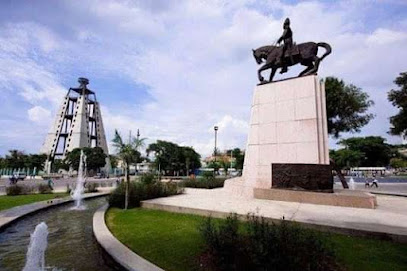
Fort Jacques et Fort Alexandre
Discover the historic Fort Jacques and Fort Alexandre, where stunning mountain views meet Haiti's rich colonial history in a captivating outdoor adventure.
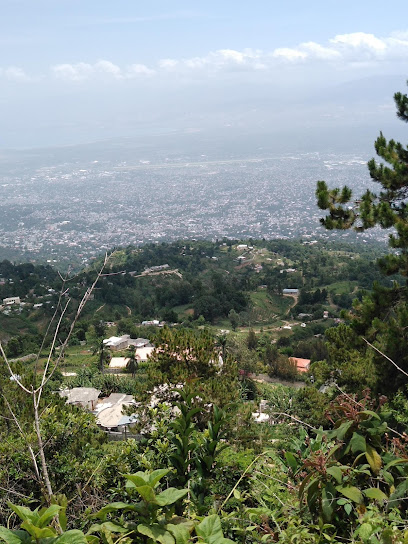
Jean-Jacques Dessalines Monument
Explore the rich history of Haiti at the Jean-Jacques Dessalines Monument, a symbol of freedom and resilience in Port-au-Prince.
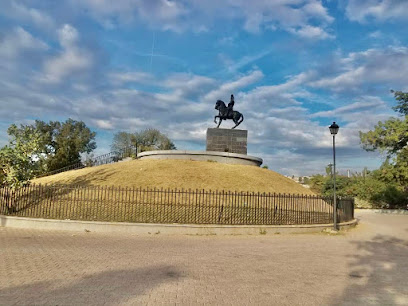
Centre Sportif et Récréatif de Turgeau
Experience the vibrant energy of Port-au-Prince at the Centre Sportif et Récréatif de Turgeau, a hub for sports and recreation in Haiti.
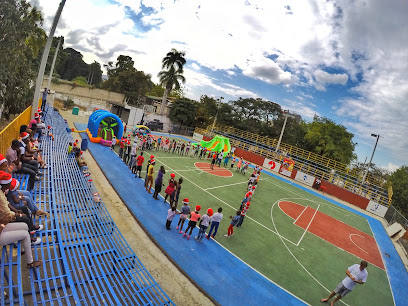
Tour 2004 Bicentennial Monument
Discover the iconic Tour 2004 Bicentennial Monument, a symbol of Haiti's independence and cultural pride in the heart of Port-au-Prince.
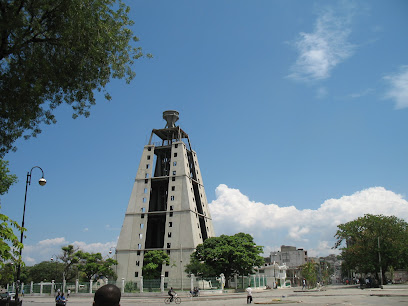
Pont Rouge
Discover the historical significance and beauty of Pont Rouge, a key landmark in Port-au-Prince that reflects Haiti's rich culture and heritage.
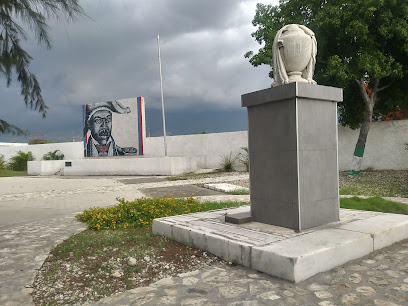
Complexe loisir de turgeau
Experience the joy and culture at Complexe Loisirs de Turgeau, a vibrant recreational hub in Port-au-Prince, perfect for families and friends.
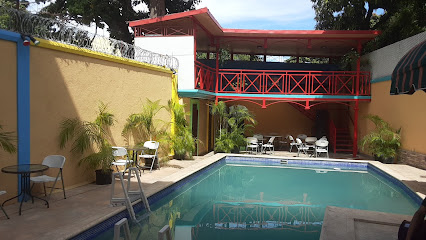
ISPAN HAÏTI
Discover ISPAN HAÏTI, a unique blend of governance and culture in Port-au-Prince, showcasing the heart and soul of Haitian society.

Fontaine Madame Colo
Explore the vibrant artistry of Fontaine Madame Colo, a captivating monument in Port-au-Prince that reflects Haiti's rich heritage and culture.

Turgeau
Experience the vibrant culture and rich history of Turgeau, a lively neighborhood in Port-au-Prince, Haiti, filled with local flavors and artistic expressions.
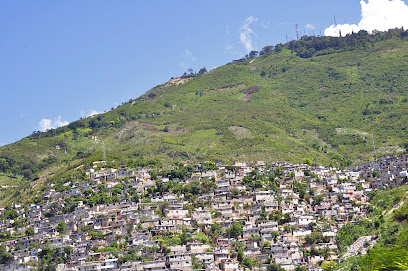
Unmissable attractions to see
Maison Dufort
Discover the rich tapestry of Haitian culture and history at Maison Dufort, a captivating museum in Port-au-Prince.
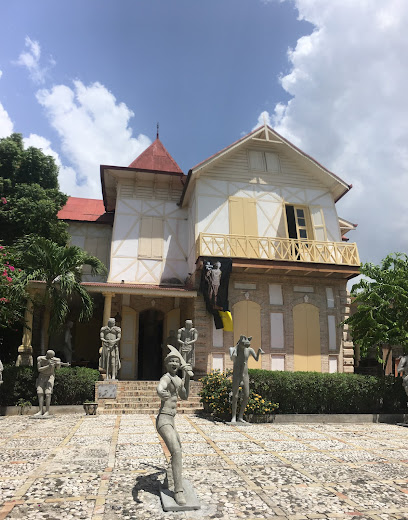
Tombeau de Dessalines
Explore the Tombeau de Dessalines, a serene memorial park dedicated to Haiti’s founding father, Jean-Jacques Dessalines, and immerse in rich history.
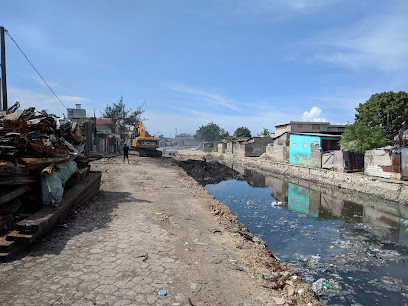
Complexe loisir de turgeau
Discover the perfect blend of leisure and excitement at Complexe Loisirs de Turgeau, the ultimate recreational destination in Port-au-Prince.
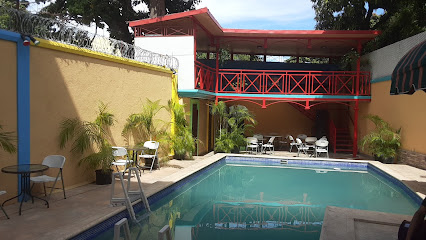
Port au prince
Explore the lush parks and vibrant culture of Port-au-Prince, Haiti's capital, where nature meets history in a unique urban setting.

Essential places to dine
Piment Rouge
Experience authentic Haitian cuisine at Piment Rouge in Port-au-Prince - where every dish tells a story.
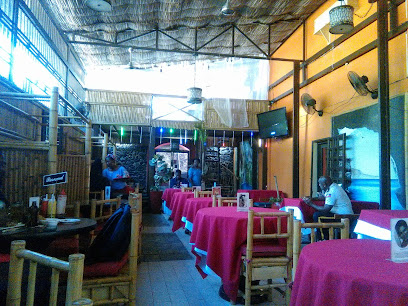
Recreation Bar Restaurant Dansant
Discover authentic Haitian cuisine and vibrant entertainment at Recreation Bar Restaurant Dansant in Port-au-Prince.
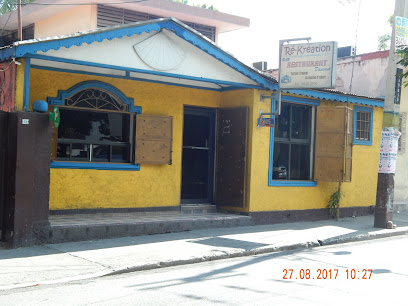
Lily's Fresco and Snack
Experience authentic Haitian flavors at Lily's Fresco and Snack in Port-au-Prince – where every meal is a celebration of local cuisine.
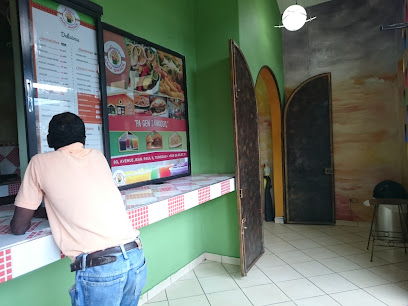
L’Angelys Bar Restauray
Experience authentic Haitian flavors at L’Angelys Bar Restaurant in Port-au-Prince, where local cuisine meets warm hospitality.
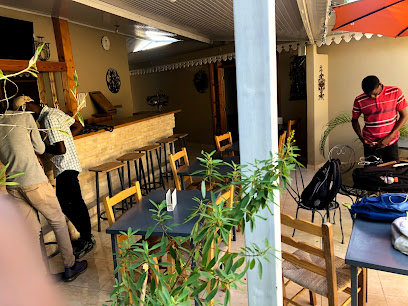
Yianialou
Experience authentic Haitian flavors at Yianialou in Port-au-Prince – where culture meets cuisine.

Bon nan Bouch
Discover the authentic taste of Haiti at Bon nan Bouch in Port-au-Prince – where every meal tells a story.

Alvarez Restaurant
Experience authentic Haitian cuisine at Alvarez Restaurant in Port-au-Prince, where every meal tells a story through vibrant flavors.

Jaden Sanba
Discover authentic Haitian cuisine at Jaden Sanba in Port-au-Prince - a culinary journey through Haiti's rich flavors awaits you.
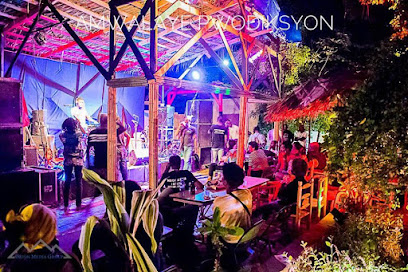
Holi's
Discover authentic Haitian flavors at Holi's in Port-au-Prince - a must-visit restaurant offering rich culinary experiences.

Boutique SOL Resto Fast Food
Savor delicious traditional American cuisine at Boutique SOL Resto Fast Food in Port-au-Prince—where comfort meets local flavor.

Markets, malls and hidden boutiques
WEIRD
Explore WEIRD, Port-au-Prince's standout couture store showcasing unique Haitian fashion and craftsmanship, perfect for discerning tourists and fashion lovers.

Cité Georges
Explore the vibrant culture of Haiti through unique handcrafted gifts at Cité Georges in Port-au-Prince.

B&M Boutique
Explore the vibrant fashion scene at B&M Boutique in Port-au-Prince, where local creativity meets contemporary style.

Bitoka shop
Explore Bitoka Shop in Port-au-Prince for authentic Haitian ingredients and immerse yourself in the vibrant local culture.

beestore
Discover the charm of Beestore: a unique consignment shop in Port-au-Prince offering local fashion treasures at affordable prices.

The Golden Sugar
Discover unique fashion accessories that blend local artistry with modern style at The Golden Sugar in Port-au-Prince, a must-visit for every tourist.

Boutique de natation
Explore Boutique de Natation, a vibrant supermarket in Port-au-Prince offering a taste of local culture and authentic Haitian products.

REVI
Explore REVI in Cap-Haïtien for authentic Haitian gifts and unique cultural treasures, perfect for souvenirs and special moments.

Seulâbre_création
Explore the vibrant world of Haitian craftsmanship at Seulâbre_création, a unique bangle and craft shop in Port-au-Prince.

Turgeau
Experience the vibrant heart of Port-au-Prince at Turgeau supermarket, where local culture meets everyday essentials in a colorful shopping atmosphere.

Essential bars & hidden hideouts
Recreation Bar Restaurant Dansant
Discover the vibrant culture and delicious flavors of Haiti at Recreation Bar Restaurant Dansant in Port-au-Prince.
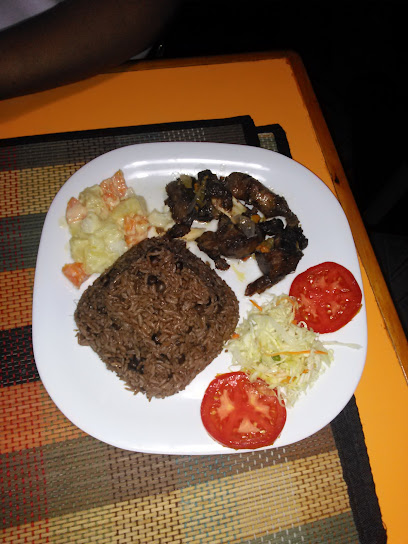
Bar De lere
Discover the vibrant nightlife of Port-au-Prince at Bar De lere, where local flavors and friendly vibes come together for an unforgettable evening.
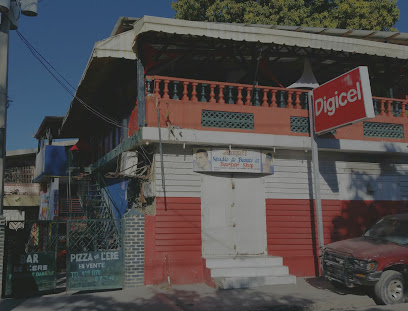
Toast 37
Discover the vibrant atmosphere and delightful drinks at Toast 37, a must-visit bar in Port-au-Prince's lively Bois Verna neighborhood.
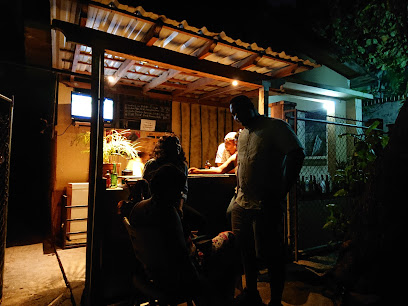
Trafik pool & bar
Experience the vibrant atmosphere at Trafik Pool & Bar, where refreshing drinks meet a lively poolside ambiance in the heart of Port-au-Prince.
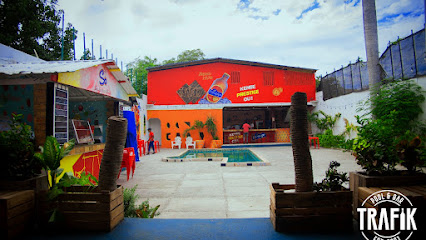
Tropical Bar & Grill
Experience the vibrant flavors and tropical vibes at Tropical Bar & Grill in Port-au-Prince, where every sip and bite tells a story of Haiti.

Frenshe's bar
Discover the vibrant spirit of Port-au-Prince at Frenshe's Bar, where local flavors and lively atmosphere meet.
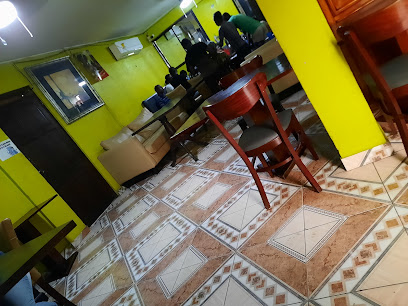
Floye Bar Restaurant Dansant
Immerse yourself in the vibrant atmosphere of Floye Bar Restaurant Dansant, where delicious Haitian cuisine meets lively entertainment in Port-au-Prince.
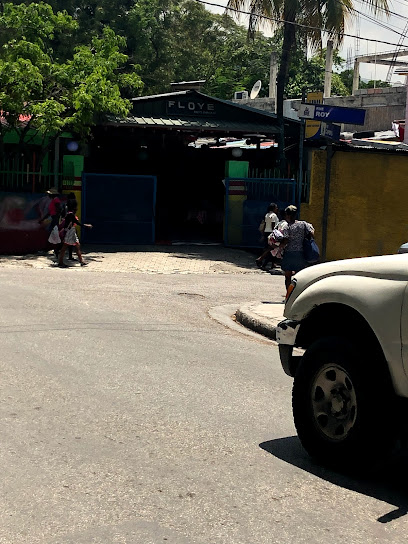
L’Angelys Bar Restauray
Experience the authentic taste of Haiti at L’Angelys Bar Restaurant, where local flavors and warm hospitality create unforgettable dining moments.
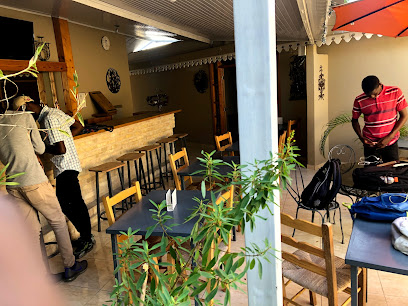
Hot bar
Discover the vibrant nightlife of Port-au-Prince at Hot Bar, where delicious drinks and a lively atmosphere await every visitor in Haiti.

Holi's
Discover the heart of Haitian cuisine at Holi's, where vibrant flavors and local culture come together in a unique dining experience.

Local Phrases
-
- HelloBonjou
[bon-zho] - GoodbyeOrevwa
[oh-rev-wah] - YesWi
[wee] - NoNon
[nohn] - Please/You're welcomeTanpri
[tahn-pree] - Thank youMèsi
[meh-see] - Excuse me/SorryEskize mwen
[es-kee-zay mwenn] - How are you?Kijan ou ye?
[kee-jahn oo yay] - Fine. And you?Byen. E ou menm?
[byen. ay oo menm] - Do you speak English?Èske ou pale angle?
[es-keh oo pal-ay ang-glay] - I don't understandMwen pa konprann
[mwenn pah kohn-prahn]
- HelloBonjou
-
- I'd like to see the menu, pleaseMwen ta renmen wè meni an, tanpri
[mwenn tah rahn-men way meh-nee ahn, tahn-pree] - I don't eat meatMwen pa manje vyann
[mwenn pah mahn-jay vee-ahn] - Cheers!Santé!
[sahn-tay] - I would like to pay, pleaseMwen ta renmen peye, tanpri
[mwenn tah rahn-men pay-yay, tahn-pree]
- I'd like to see the menu, pleaseMwen ta renmen wè meni an, tanpri
-
- Help!Ed!
[ayd] - Go away!Ale!
[ah-lay] - Call the Police!Rele Polis la!
[ray-lay poh-lees lah] - Call a doctor!Rele yon doktè!
[ray-lay yohn dohk-teh] - I'm lostMwen pèdi mwen
[mwenn pay-dee mwenn] - I'm illMwen malad
[mwenn mah-lahd]
- Help!Ed!
-
- I'd like to buy...Mwen ta renmen achte...
[mwenn tah rahn-men ahkht-ay] - I'm just lookingMwen jis gade
[mwenn zjee gah-day] - How much is it?Konbyen li ye?
[kohn-byen lee yay] - That's too expensiveSa twò chè
[sah twah sheh] - Can you lower the price?Èske ou kapab ba pri a?
[es-keh oo kah-pah bah pree ah]
- I'd like to buy...Mwen ta renmen achte...
-
- What time is it?Ki lè li ye?
[kee lay lee yay] - It's one o'clockLi senk
[lee sank] - Half past (10)Demi (disè)
[deh-mee dee-zay] - MorningMaten
[mah-tehn] - AfternoonApremidi
[ah-pray-mee-dee] - EveningAswè
[ah-sway] - YesterdayYe
[yay] - TodayJodi a
[zho-dee ah] - TomorrowDemen
[deh-men] - 1Yon
[yohn] - 2De
[day] - 3Twaz
[twahz] - 4Kat
[kaht] - 5Senk
[sank] - 6Sis
[sees] - 7Sèt
[set] - 8Uit
[weet] - 9Nèf
[neff] - 10Disè
[dee-zay]
- What time is it?Ki lè li ye?
-
- Where's a/the...?Kote yon/la...?
[koh-teh yohn/lah] - What's the address?Kisa adres la?
[kee-sah ah-dray lah] - Can you show me (on the map)?Èske ou ka montre mwen (sou kat)?
[es-keh oo kah mohn-tray mwenn (soh kaht)] - When's the next (bus)?Ki lè pwochen la?
[kee lay pwoh-shen lah] - A ticket (to ....)Yon tikè (pou ....)
[yohn tee-kay (poo)]
- Where's a/the...?Kote yon/la...?
History of Turgeau
-
Turgeau, established during the colonial period, reflects the architectural and urban planning influences of 18th-century French colonialism in Port-au-Prince. Originally a residential area for the affluent French plantation owners, Turgeau's layout and design were influenced by European styles, evident in its grand homes and boulevards. This neighbourhood played a significant role in shaping the urban landscape of Port-au-Prince, contributing to the city’s status as a cultural and economic hub.
-
The Haitian Revolution (1791-1804) dramatically transformed Turgeau and the surrounding areas. As enslaved people fought for their freedom, the dynamics of property ownership and social structure in neighborhoods like Turgeau changed. The aftermath of the revolution saw a new social order emerge, wherein many formerly enslaved individuals settled in the area, leading to a diverse community that helped shape the cultural identity of Port-au-Prince.
-
In the early to mid-20th century, Turgeau experienced significant growth, becoming a vibrant neighborhood that attracted professionals and artists. The establishment of educational institutions, such as the Lycée Alexandre Dumas, and cultural venues contributed to a flourishing intellectual environment. This period saw Turgeau evolve into a center of cultural expression, reflecting the broader artistic movements in Haiti, including the Haitian Renaissance.
-
Turgeau, like many neighborhoods in Port-au-Prince, faced challenges during periods of political instability, particularly during the Duvalier regime (1957-1986). The neighborhood was affected by government repression and social unrest, which influenced its demographic and socioeconomic landscape. Despite these challenges, community resilience led to the preservation of cultural identities and traditions, fostering a sense of unity among residents.
-
Today, Turgeau is recognized as a cultural hub within Port-au-Prince. It is home to various art galleries, cultural organizations, and community centers that promote Haitian art and heritage. The neighbourhood hosts numerous festivals and events that celebrate Haitian culture, contributing to its reputation as a dynamic area that bridges the rich history of Port-au-Prince with contemporary artistic expressions.
Turgeau Essentials
-
Turgeau is easily accessible from various neighborhoods in Port-au-Prince. Taxis and motorbike taxis (moto-taxis) are common and can be hailed from almost anywhere. For a more budget-friendly option, you can use 'tap-tap' shared minibuses, which are a popular mode of transport in the city. The main roads leading to Turgeau are well-connected, and it is approximately a 30-minute drive from the airport, depending on traffic.
-
Turgeau is a walkable neighborhood, and many attractions can be explored on foot. For longer distances, local taxis are readily available. While there are no formal public train services or bike rental schemes, you can use moto-taxis for quicker travel. It is advisable to negotiate fares in advance if using a taxi or moto-taxi.
-
Turgeau is generally considered safe for tourists, but caution is always advised. Avoid displaying valuables and be mindful of your surroundings, especially in crowded areas. Areas to avoid include the outskirts of Turgeau, particularly after dark, where petty crime can occur. Always ask locals or hotel staff for advice on safe routes.
-
In case of an emergency, dial 114 for police assistance or 118 for fire services. Medical facilities can be found in and around Turgeau, but it is recommended to have travel insurance that covers medical emergencies. Local pharmacies can provide basic over-the-counter medications in case of minor health issues.
-
Fashion: Do dress modestly, especially in religious or rural areas. Avoid overly revealing clothing. Religion: Do show respect for local customs; when visiting churches, cover your shoulders and wear long pants or skirts. Public Transport: Do be courteous and offer your seat to elderly passengers. Don't eat or drink on public transport. Greetings: Do greet with a friendly handshake and a warm smile. Eating & Drinking: Do try local dishes and accept food offered to you; don't refuse hospitality, as it can be seen as rude.
-
To experience Turgeau like a local, visit the bustling markets where you can sample fresh fruits and local dishes. Engage with residents; they are often eager to share their culture and history. Look for local art galleries and street vendors to appreciate the vibrant creativity of the neighborhood. Don’t miss the chance to attend local festivals or music events for an authentic experience.
Nearby Cities to Turgeau
-
Things To Do in Port-au-Prince
-
Things To Do in Jacmel
-
Things To Do in Saint-Marc
-
Things To Do in Hinche
-
Things To Do in Gonaïves
-
Things To Do in Cap-Haïtien
-
Things To Do in Les Cayes
-
Things To Do in Jérémie
-
Things To Do in Jarabacoa
-
Things To Do in Puerto Plata
-
Things To Do in Santo Domingo
-
Things To Do in Samana
-
Things To Do in Salt Cay
-
Things To Do in South Caicos
-
Things To Do in Cockburn Town








